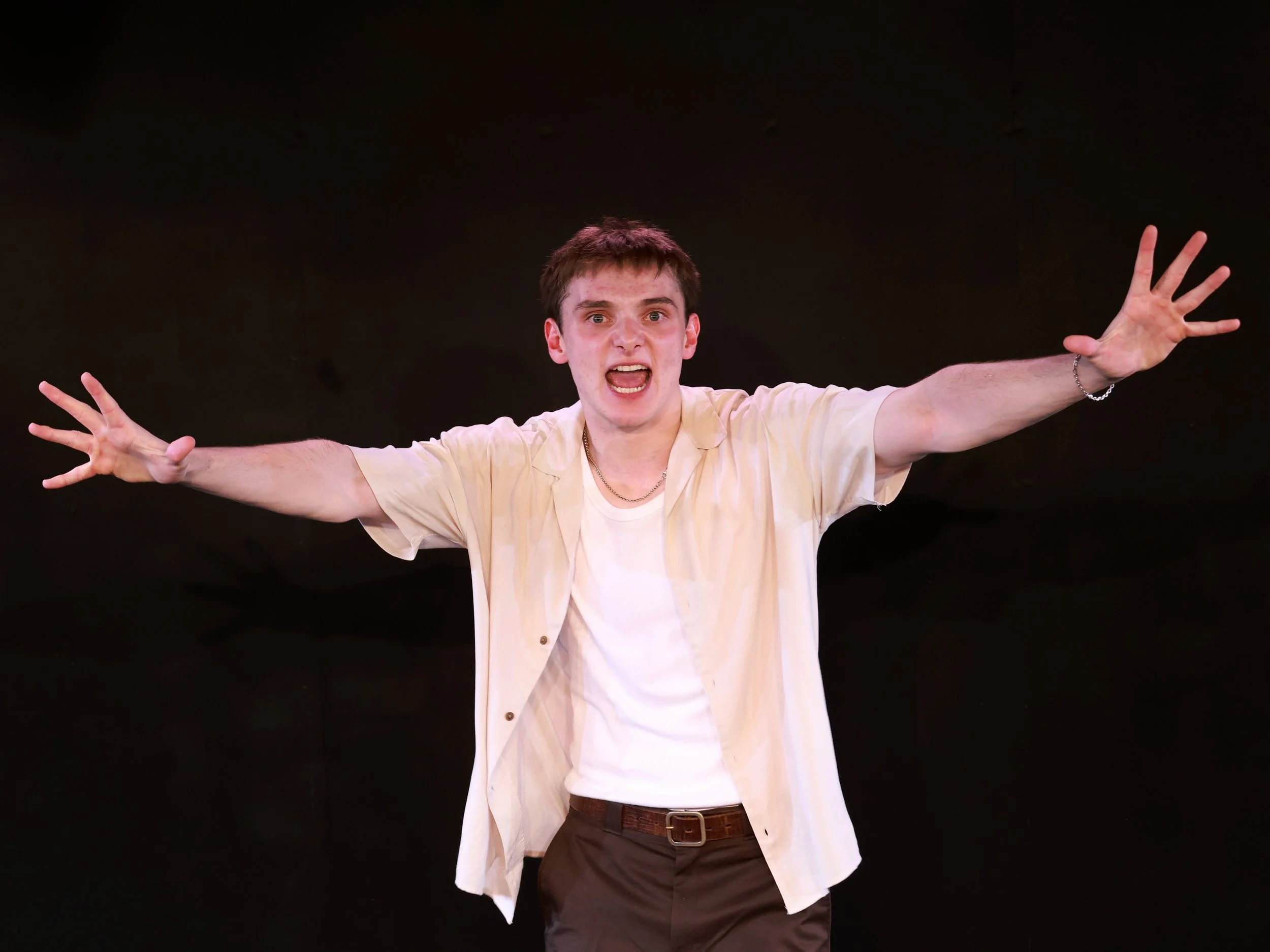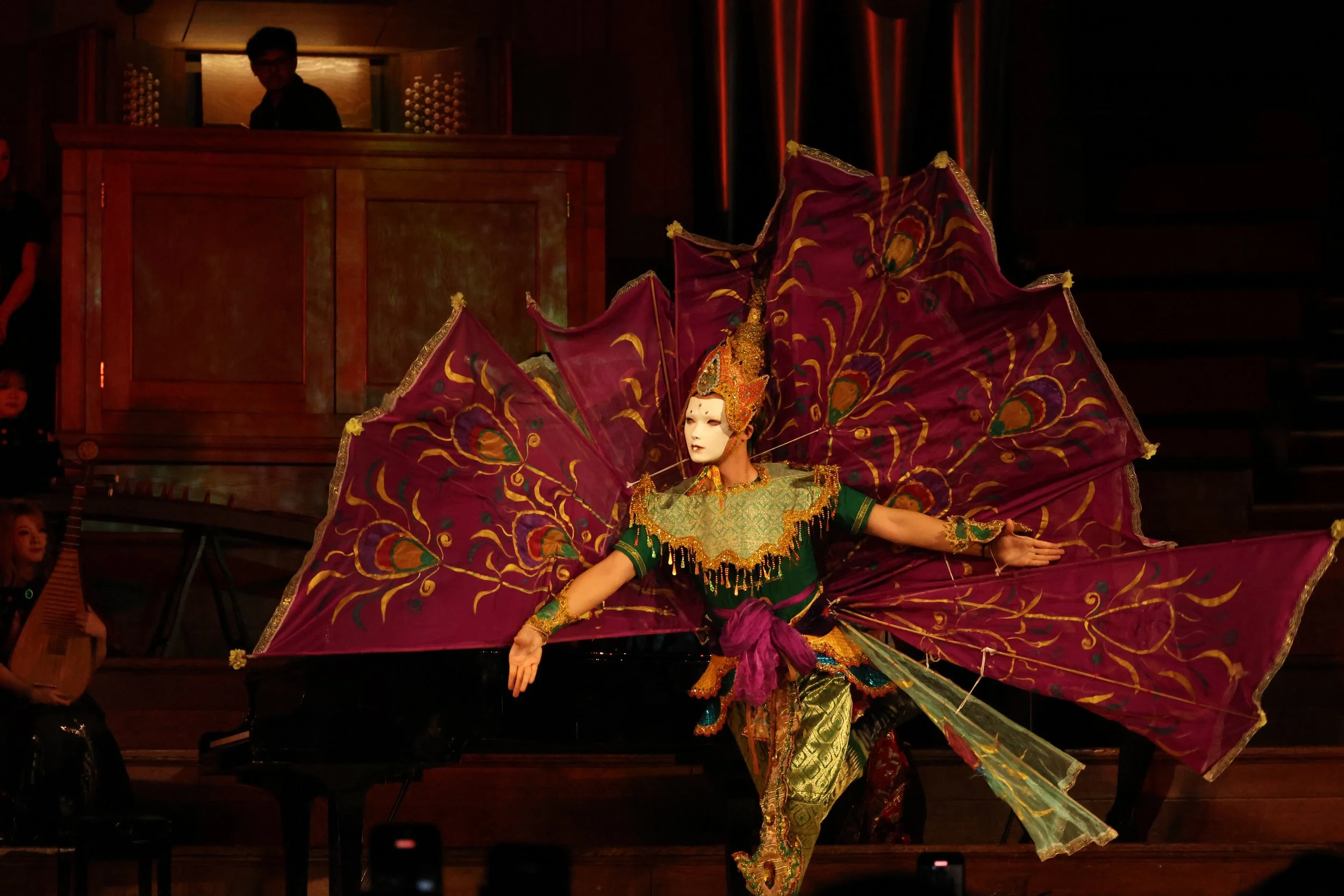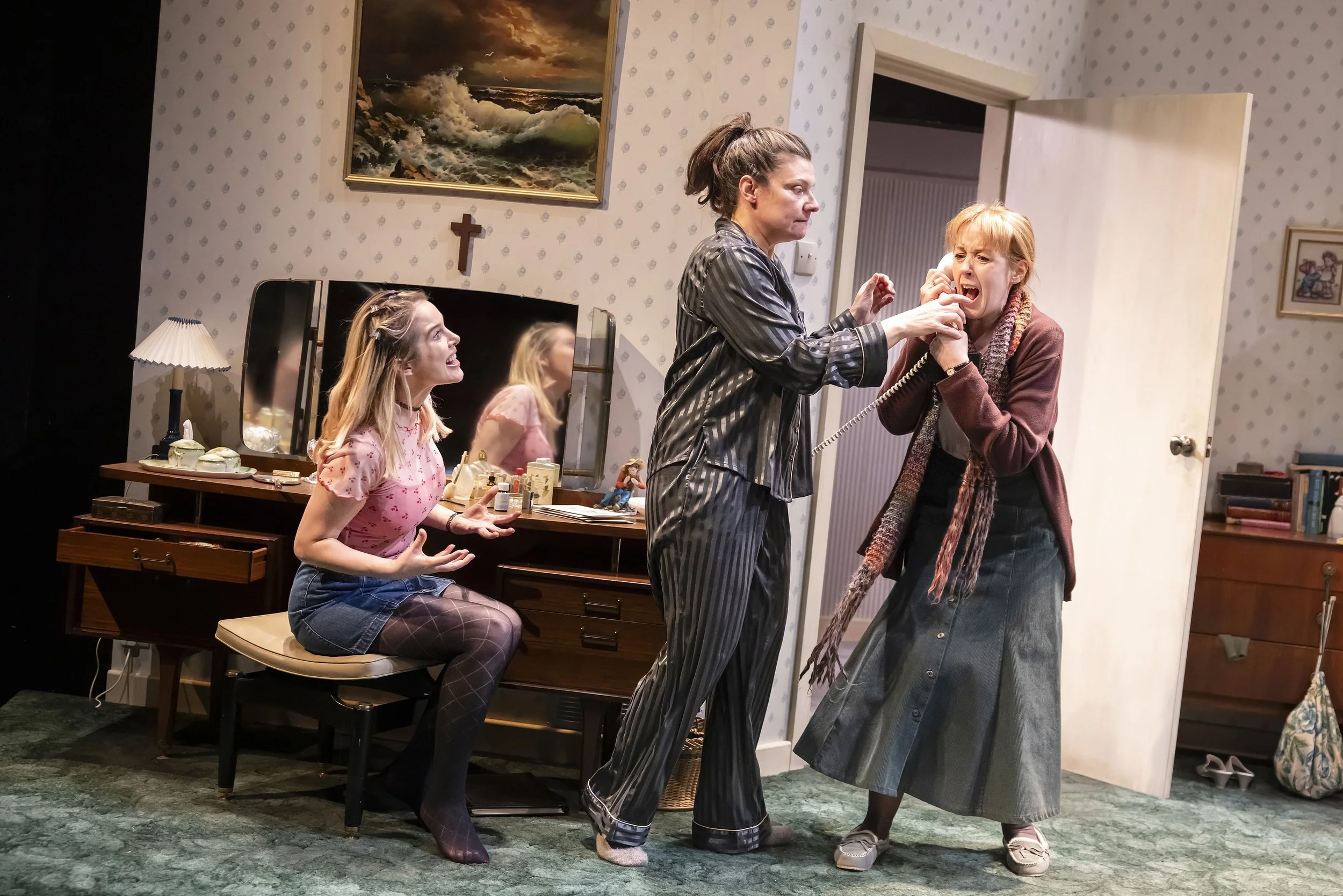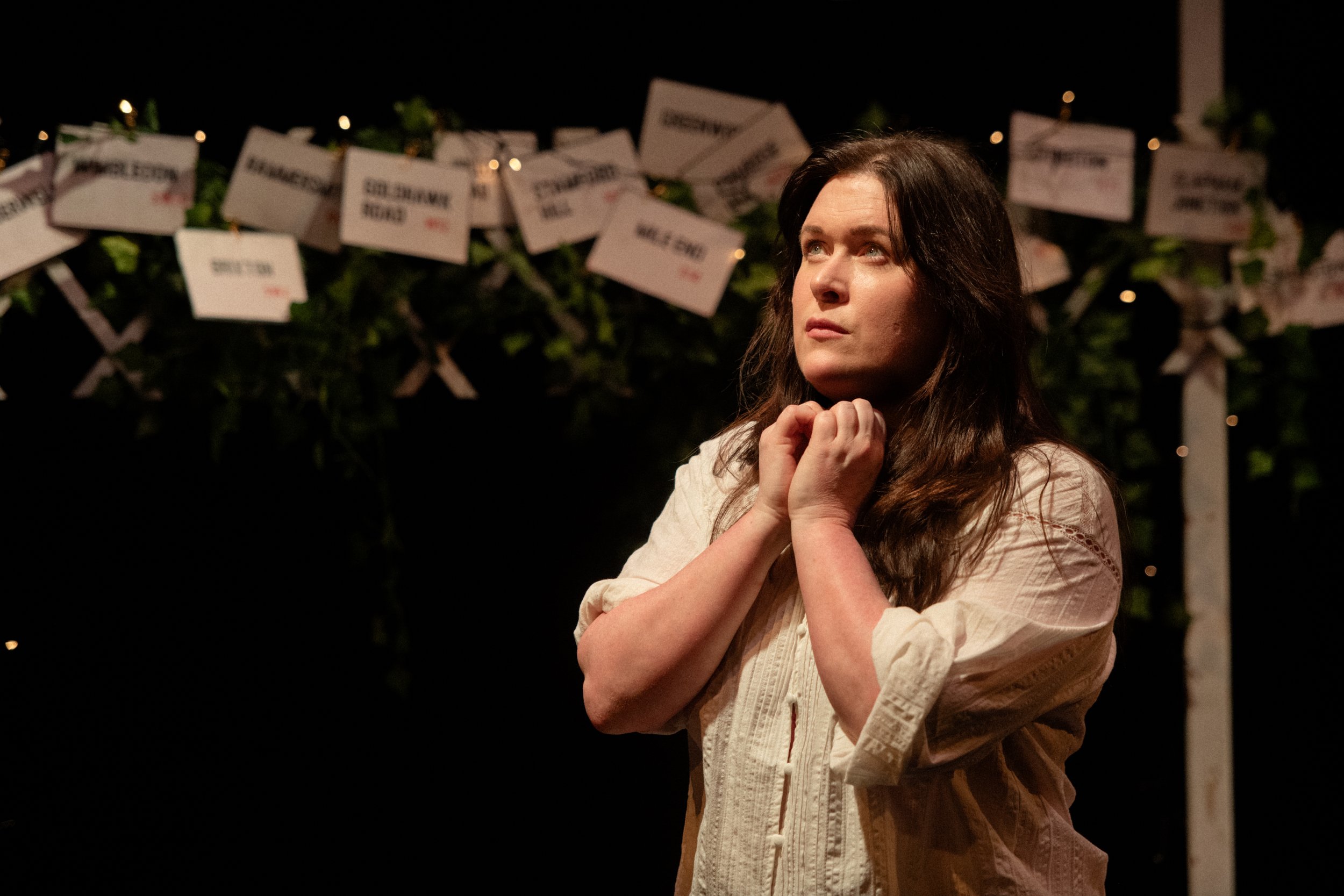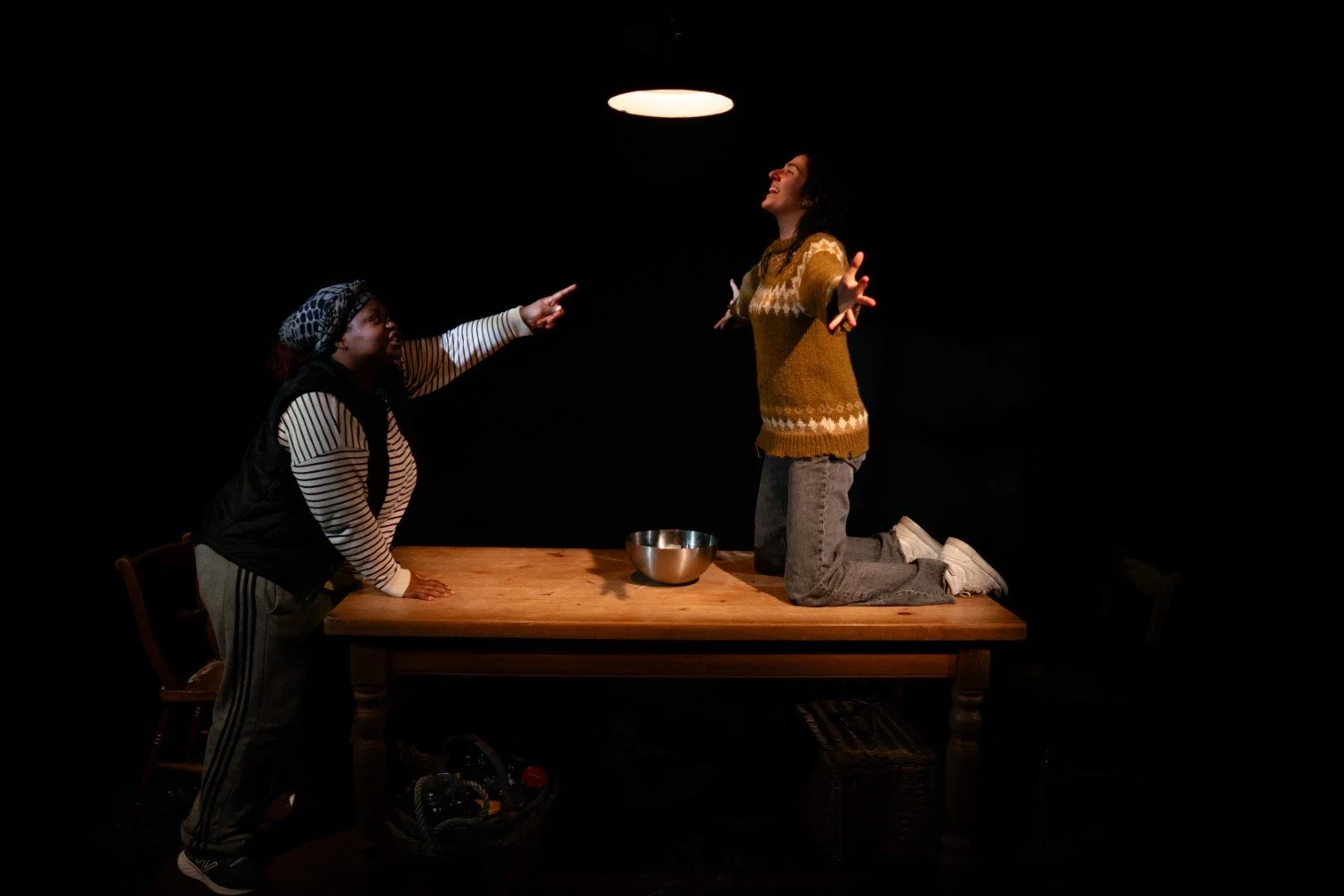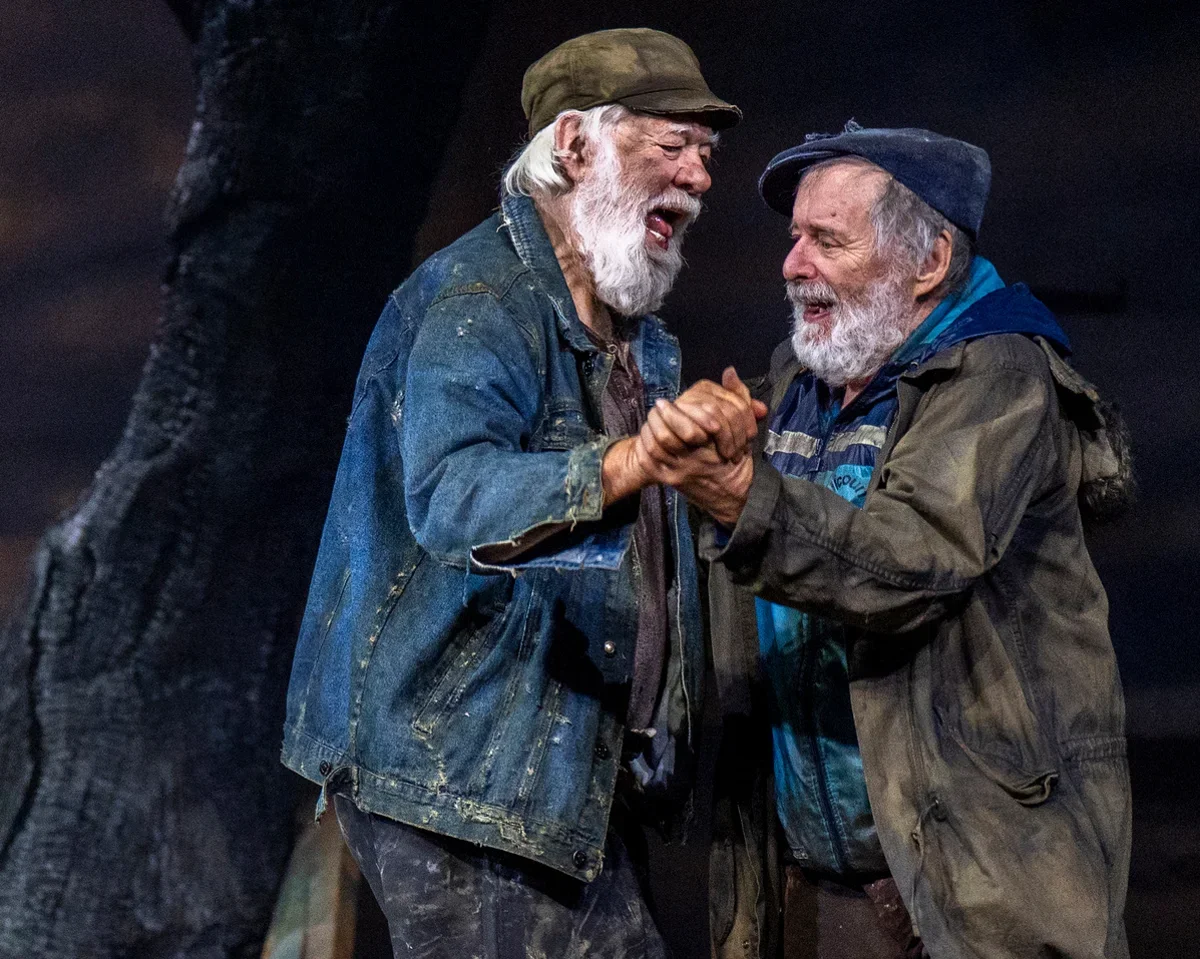Poltergeist at Arcola Theatre Review
Louis Davison in Poltergeist. Photo by Simon Annand
Written by Greta for Theatre & Tonic
Disclaimer: Gifted tickets in exchange for an honest review
Content warnings: Drug misuse, themes of grief, swearing
Staged in the Arcola’s Theatre studio space, Poltergeist is a meticulously crafted example of theatre on the verge of a breakdown. It doesn’t dazzle with spectacle; it scrapes raw at nerves.
The play revolves around Sasha, a young man whose past is as glamorous as it’s haunting. After his early art gained him the label of child prodigy, millions of views on YouTube, and an exhibition deal, Sasha now has no inspiration, no prospects and a fraying relationship with his family. When he and his attentive, sunny partner Chet are invited to Sasha’s niece’s birthday party, we are washed over by the wave of Sasha’s dread, quickly spiralling into frenzy.
Sasha’s relentless internal commentary is a furious, cynical invective aimed at everything and everyone he encounters. Philip Ridley arms him with an endless arsenal of disdainful quips, delivered with caustic spite, but always underscored by profound pain. Keeping up with his unique, intense perspective is both exhausting and wickedly funny.
At the party, Sasha faces unwelcome memories of an unresolved past. Despite Chet’s attempts to defuse tension, the other guests’ insistence at reminiscing threatens to push him to a breaking point. Louis Davison plays all the characters, each of them emerging fully realised through distinct accents, voices, and physicality; it’s a mind-blowing feat that reminds of the very few, very skilled athletes who, through constant and arduous training, manage to push the human body beyond its limits.
Philip Ridley’s writing is sharp and visceral; when Sasha smiles politely through pleasantries, we’re already in on the tirade he’d rather unleash. Throughout the play’s 80 minutes, not only we get to know Sasha well, but are also able to peek past his narration, which is not always reliable. While the play remains firmly rooted in Sasha’s inner world, we get significant glimpses into what he might be hiding from even himself. Some of his observations veer towards the predictable, but the speed and venom keep them sharp.
Wiebke Green’s direction harnesses the speed and violence of Ridley’s dialogue, while Louis Davison ricochets between characters at breakneck pace. The shifts are so precise that even when Davison is simultaneously narrating, contradicting, and negotiating, the audience never loses track.
While the themes may not touch everyone personally, the empathy they elicit is undeniable. The final notes of the piece land surprisingly gently – as if the fury has burned itself out and left something tentative, almost hopeful, in its place. Ultimately, Poltergeist pokes at the lies we tell ourselves to avoid the pain of processing trauma, and leaves us oddly invested in the lives it skewers.
Plays until 11 October at Arcola Theatre
★★★★★

